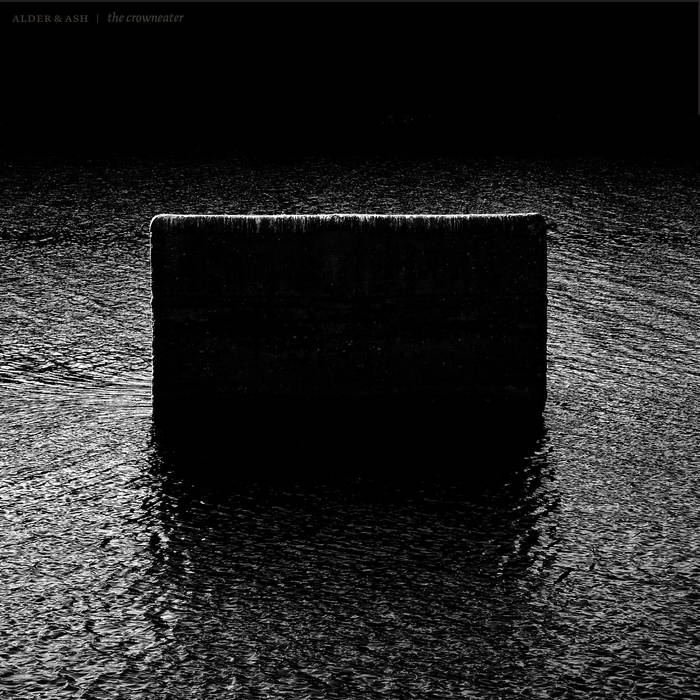With Clara, the sound sculptor Scott Morgan continues to astound. Morgan’s latest LP as loscil – short, for the record, for “looping oscillator” – is an interesting conglomeration of his more recent efforts, combining both the airy and abstract sound-shapes of Equivalents with the somewhat ominous and more narrative-driven musique concrete of works like Monument Builders. The end result is a beguiling work that toys with the space between light and shadow, while touching on themes of space and gravity as all-encompassing and inspiring as the universe itself.
It’s easy to get caught in the sonic web Morgan weaves – even moreso if you’ve been enamored with his work previously. His ambient modus operandi is to take source material and break it down to its most basic essences, then build foundations and colorfully paint with supple sound-beds from there. On Clara, so it goes, he took a three-minute composition performed by a 22-piece string orchestra in Budapest, then lathe-cut it to seven-inch vinyl. The vinyl, in the turn of phrase of his label, Kranky, was then “scratched and abused to add texture and color, from which the entirety of Clara was sampled, shape-shifted and sculpted.” It’s an interesting concept and one not entirely alien to Morgan, a master of conjuring subtle movement and narrative development with sound. There’s little evidence of the Budapest orchestra on Clara. But the elements, the most base forms, are all there – the lush wails and whispers of stringed instruments, the pitter-patter of percussion morphed into narcotic metronomes, the emotive bend or turn of a phrase boiled down to its most common denominator.
Some songs on the 10-track outing shine brighter – or, as the case may be, shine in more of a gauzy darkness – than others. On “Lumina,” Morgan unfurls arpeggios of synth-sound that could be taken equally from a harp or a viola, then uses them to provide a backbone on which glitchy narratives fester and multiply. The more percussive elements also star on “Vespera,” which Kranky released to prime the pump on the new LP. Here, a kind of 4/4 shuffle that migrates from the left ear to the right and back again serves as a palette for breathy incantations and synth washes. That breathiness, a kind of lightness of being, returns on “Flamma,” where, again, washes of angelic sound rush over muted arpeggios, here slowed down to a Kelvin-low freezing point.
Then, there’s “Aura,” perhaps the record’s best track. It begins nearly in silence and holds its gaze as a mutilated string section – resembling a pair of violins being played not under a blanket but under miles of ocean tumult – occasionally peers out from the abyss. Then, the track expands, somewhat glacially but also with a kind of elegance, into icy crescendos of sound where Morgan places high, almost piercing trills at the base of breathier exhalations. If you take a step back, you can see the grander structures, a kind of descending blues scale on hushed church organ that is stretched polymer-thin and bare as a ghost. Give yourself over to the track, and it’s some of the most haunting work Morgan has done in years.
The record closes with the title track, whose Latin roots hint at “brightness” but whose opening almost seems to dwell in the dark deadness of outer space. The piece bares an unusual weight, as if Morgan is trying to come to conclusions about his trafficking in audio light and shadow. But, for nine minutes, it does not avert its singular gaze, growing in scope and volume to include several voices and colors, before breaking away to a kind of hypnotic drone in the closing minute or two – breathtaking gossamer.
Yes, with Clara, the sound sculptor Scott Morgan continues to astound. What’s most entrancing might be the fact that, without taking detours, the Canadian artist manages to keep his work feeling fresh and unanticipated. Clara could be read as a kind of deep dive into the textures of shadow, abandoning the tired concept of “scores to an imaginary film” in favor of something more cerebral yet no less moving. We don’t know how Morgan manages to make his musical sleight-of-hand seem so detail-specific and yet so “universal,” for lack of a better phrase. But we’re ecstatic that he keeps doing it. — Justin Vellucci, PopMatters, June 3, 2021
-30-




